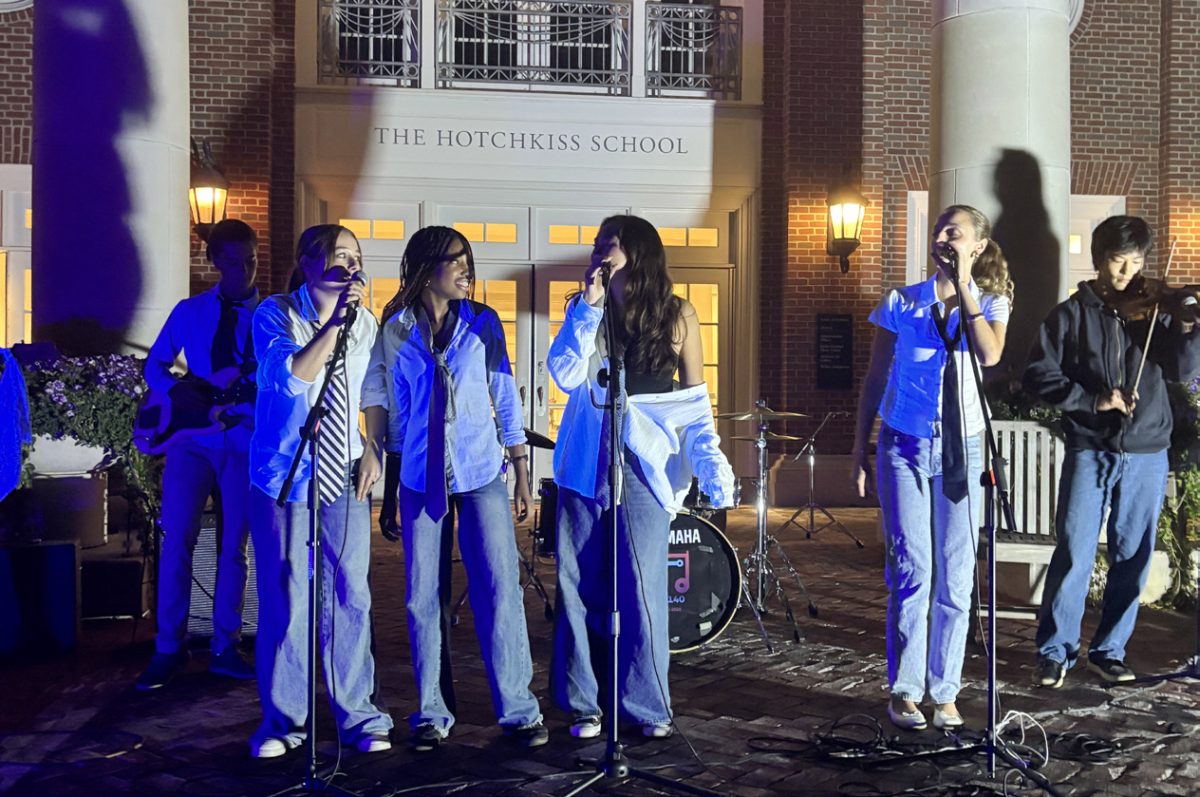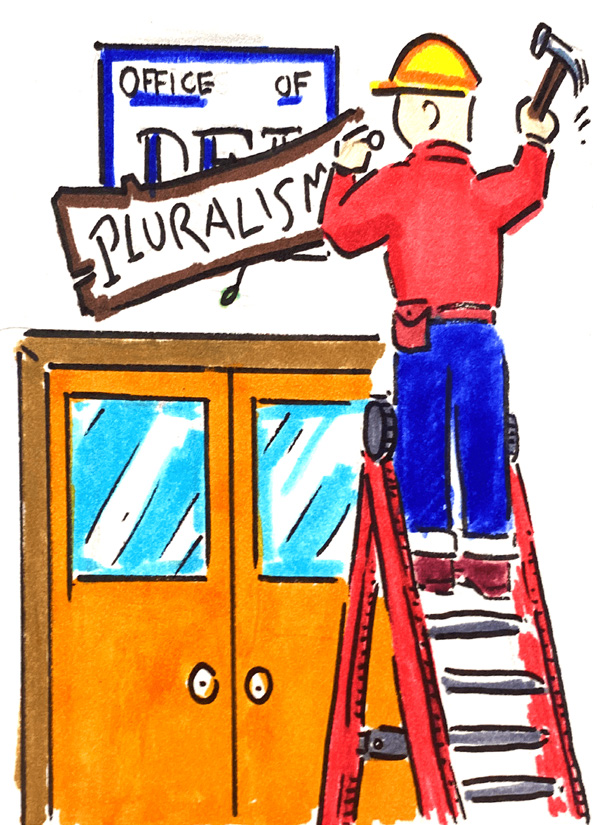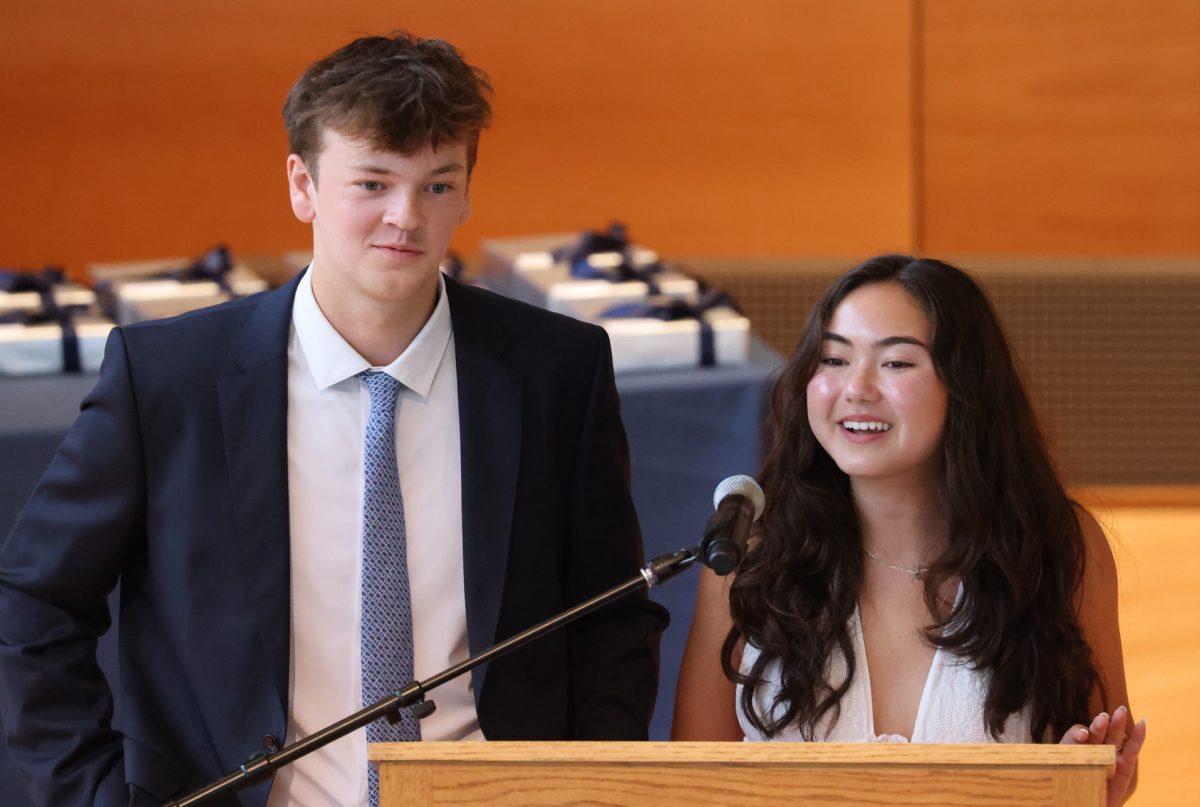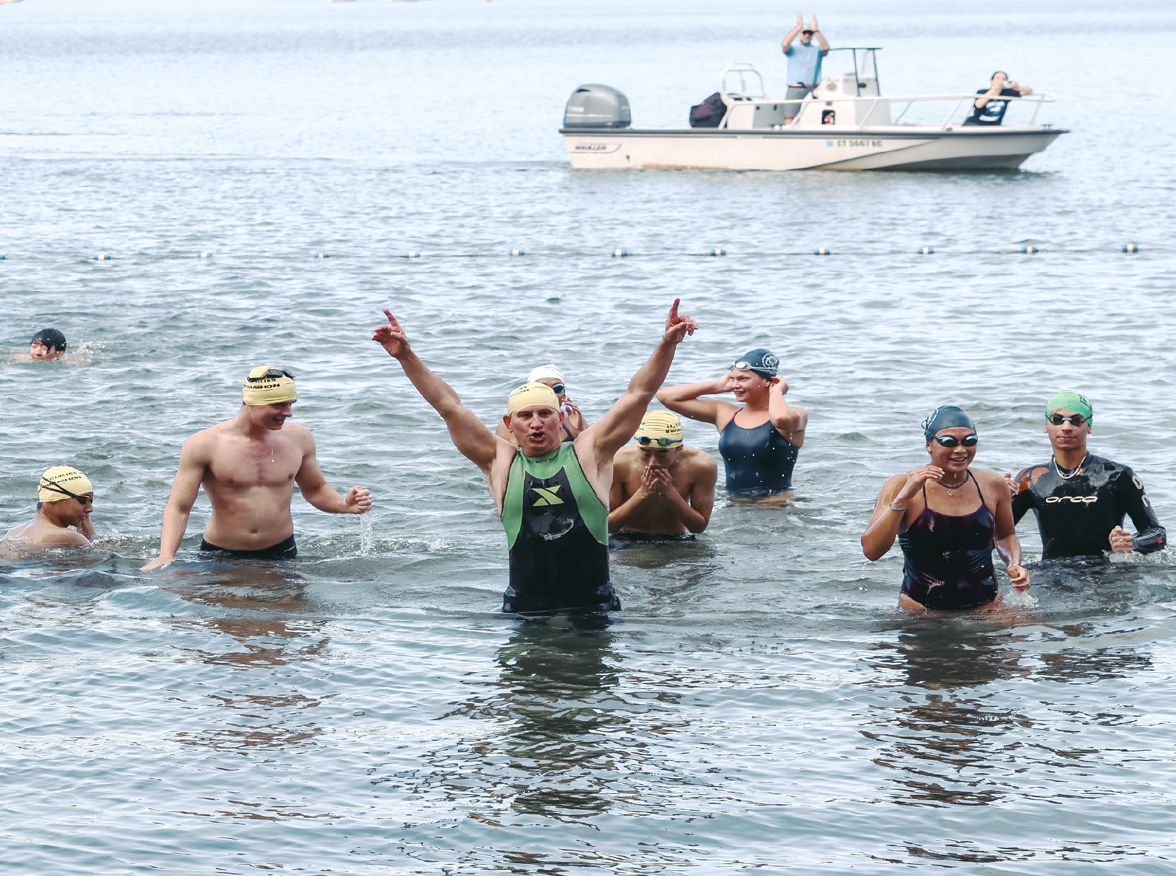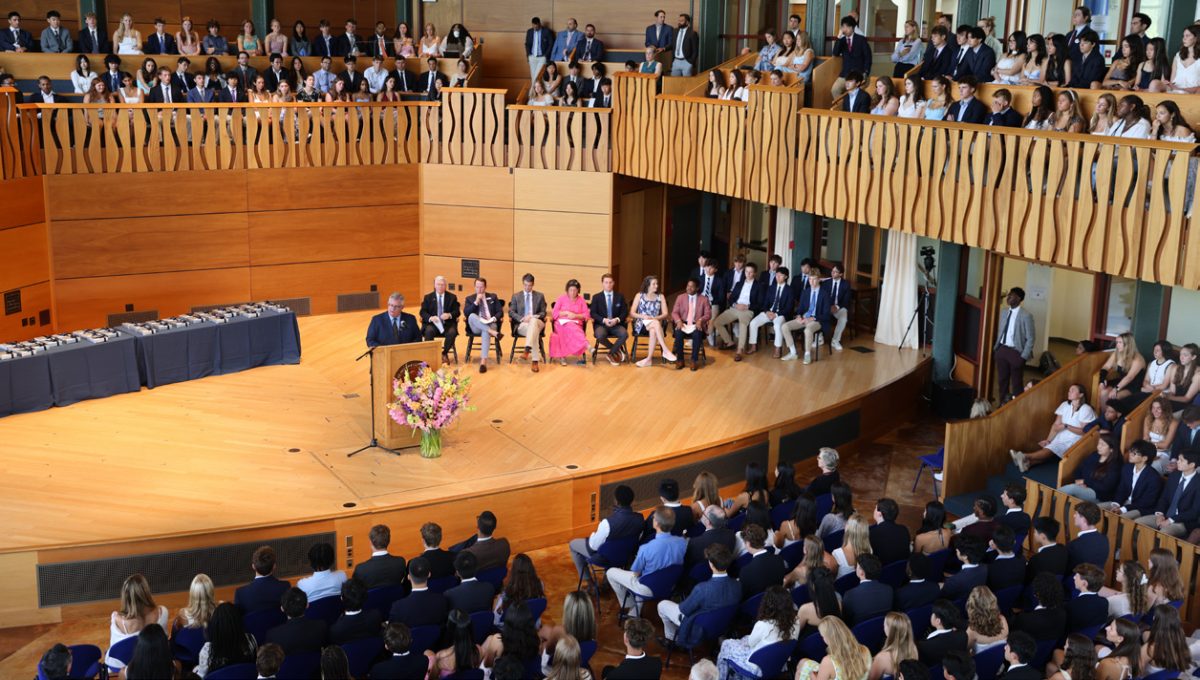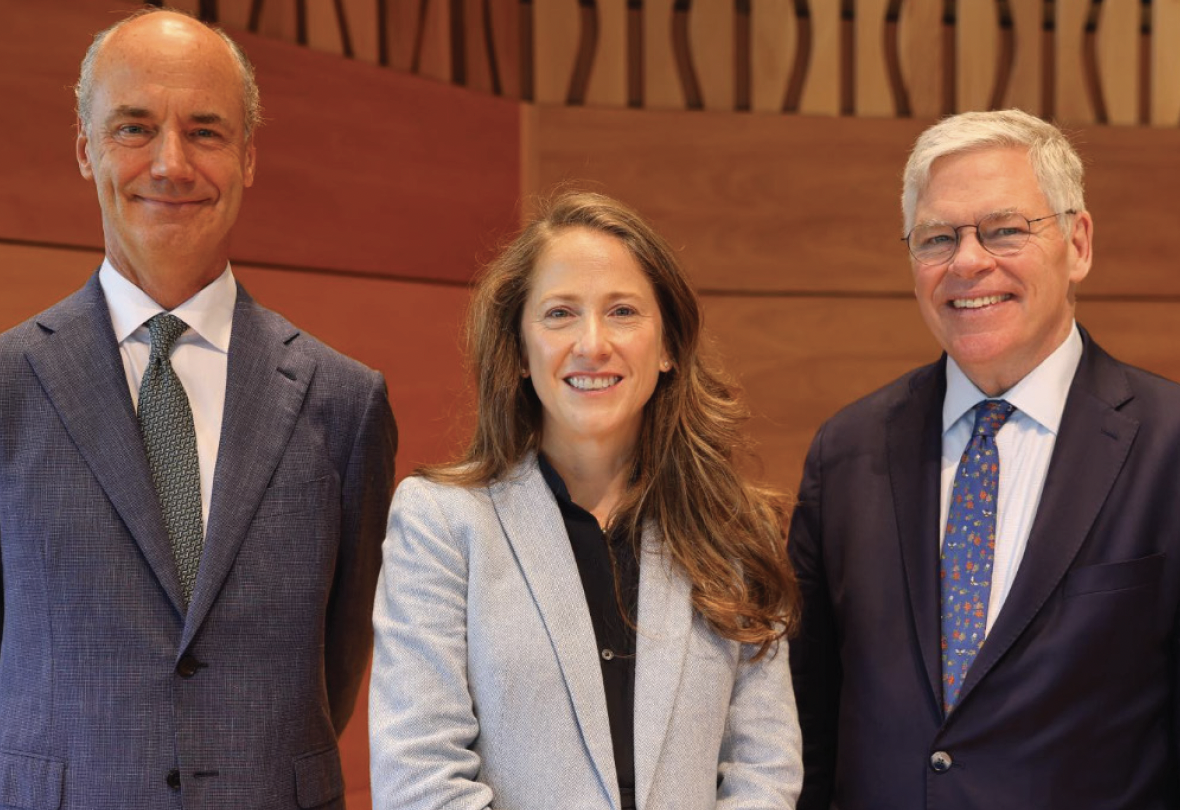This year, the student-led Open Discourse Forum will revamp its format to allow more students to participate actively in its discussions.
On Tuesday, September 23, the Forum held its first open meeting. Khloe Kim ’28 began the meeting with an overview of the Forum’s format and purpose. Students then brainstormed possible discussion topics, learned how to define terms, and created shared definitions for use during conversations. The Forum’s faculty advisor, Mr. Rick Hazelton, director of the Center for Global Understanding and Independent Thinking, said, “The goal of the meeting was to solicit community feedback on topics and issues that they would like to see addressed or debated in the Open Discourse Forum.”
Topics for future discussions may include Brexit and the EU, affirmative action, and gun control in the United States. Kim then led a conversation about identity politics in advertising to model the Forum’s structure.
As a leading member of Open Discourse since 2024, Kim has seen firsthand the impact that the Forum has on the student body over the years since its inception. Kim said, “I hear that students appreciate the meetings for providing exposure and representation, which hopefully has improved the community’s ability to interact with differing perspectives. Open discourse allows students to get to know one another in an environment where we can comfortably express our thoughts.”
Alex Gish ’26, an active member of Open Discourse and head of Hotchkiss Political Union, said, “Open discourse fosters an environment where students listen to each other and actively seek out disagreement.”
Mr. Hazelton said, “One of the biggest problems today is that many people view those with different viewpoints as ‘wrong,’ and even worse, as enemies who need to be canceled or vilified. The goal of open discourse, and all healthy discourse, is not coming to an agreement or even a compromise, but simply listening well enough to understand why someone has a different view. What is their social, economic, geographic, religious, etc. background that informs their viewpoints?”
This year, the Forum is introducing a modified format designed to encourage more students to participate. Gish said, “In past years, debates have involved two separate groups with one or more people in each. Each group was assigned an opposing view, and they would debate. Afterwards, a concluding question was shared for each group to answer. This year, the club is not only doing debates, but adding collaborative group discussions in which all members of the student body are encouraged to come to share their perspectives.”
The structural change is small, yet some students raised concerns about the less restrictive format. Daniel Zhang ’26 said, “An open discussion could lose the streamlined nature of traditional debate, in that a general consensus grows increasingly difficult to find.” The first official Open Discourse Forum of the year will be held on Tuesday, October 28. Its topic is yet to be announced, but will be influenced by the ideas discussed at the Forum’s first meeting.

